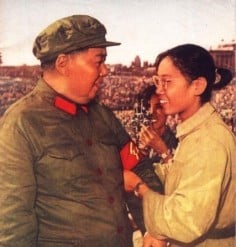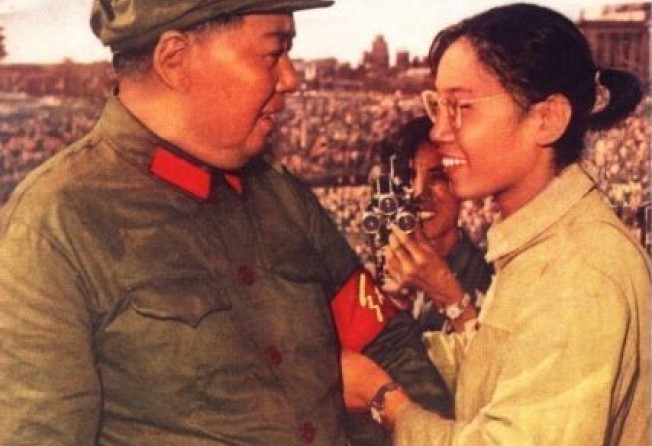
Song Binbin's Cultural Revolution apology sparks national remorse call
Broader reflection from a national perspective is needed, say commentators


Two weeks earlier, students at Song's high school had beaten their vice-principal to death, in what was widely viewed as one of the first killings of the revolution. In the ensuing decades, the photo came to represent the state's sanction of the violence carried out by the revolution's youth gangs.
Last Sunday, Song stood with former classmates and offered an apology over the death of the teacher, Bian Zhongyun. She said she could not intervene during the incident because she was afraid she would be blamed for hindering the "criticising and denouncing efforts".
Song is the daughter of Song Renqiong , one of the eight founding generals of the People's Republic, and her plea touched off discussion about its timing and what effect it might have on the nation's attitude towards the chaos that ravaged China between 1966 and 1976.
The Oriental Morning Post said in a commentary on Tuesday the admission was overdue but that it demonstrated Song's sense of responsibility both on behalf of herself and her family.
"If she could not have taken a hard look back at what she did at the onset of the Cultural Revolution, she couldn't [carry] … the glory of her family and her father's revolutionary legacy," the paper said.
The revolution remains a sensitive topic on the mainland and authorities have so far refused to heed calls for a dedicated museum.
Song told The Beijing News she hoped the students' apologies would prompt more public introspection over the turbulence.
"The Cultural Revolution was a calamitous disaster," Song said when delivering her apology during the gathering, according to the paper. "I hope that all those who did wrong during the Cultural Revolution and hurt teachers and classmates will face up to themselves and do soul searching in order to seek forgiveness and achieve reconciliation."
The Global Times said Song's apology was significant because nostalgia for the revolution had grown in some quarters. The paper maintained that the campaign was a mistake made by Mao in the latter years of his life, but that it was also a collective mistake that exposed the individual disgraces of people from all walks of life.
"As a political line of undertaking, [the mistakes of] the Cultural Revolution have been rectified and that is actually the easiest part of the job," it said. "What was exposed during the Cultural Revolution from a point of view of human nature is worth reflecting upon."
On QQ.com, Ye Kuangzheng, a commentator on social issues, said Song had tried to play down her role in the revolution but that she had been more forthcoming compared to those who had sought to reverse the verdict on the Cultural Revolution. Ye's article noted the lack of official research into the Cultural Revolution.
It said that Song was not the first and would unlikely be the last to offer an apology for acts committed during the Cultural Revolution. It added that individuals' apologies would only blur the line between soul searching and political accountability.
"What we need more is a broader reflection, from a political point of view, instead of a simple adding up of personal apologies and displays of remorse," he added.
Last year, Chen Xiaolu, the son of another Communist Party founding general, apologised for his wrongdoings during the political upheaval.
Also on QQ.com, Professor Xu Youyu, a specialist in Cultural Revolution history, said Song's apology was late but better than nothing. A personal apology, however, did not signal national remorse, which would help society heal, Xu said.
"As long as the country doesn't offer an apology as a whole nation, there will not be an end to the guilt people feel."